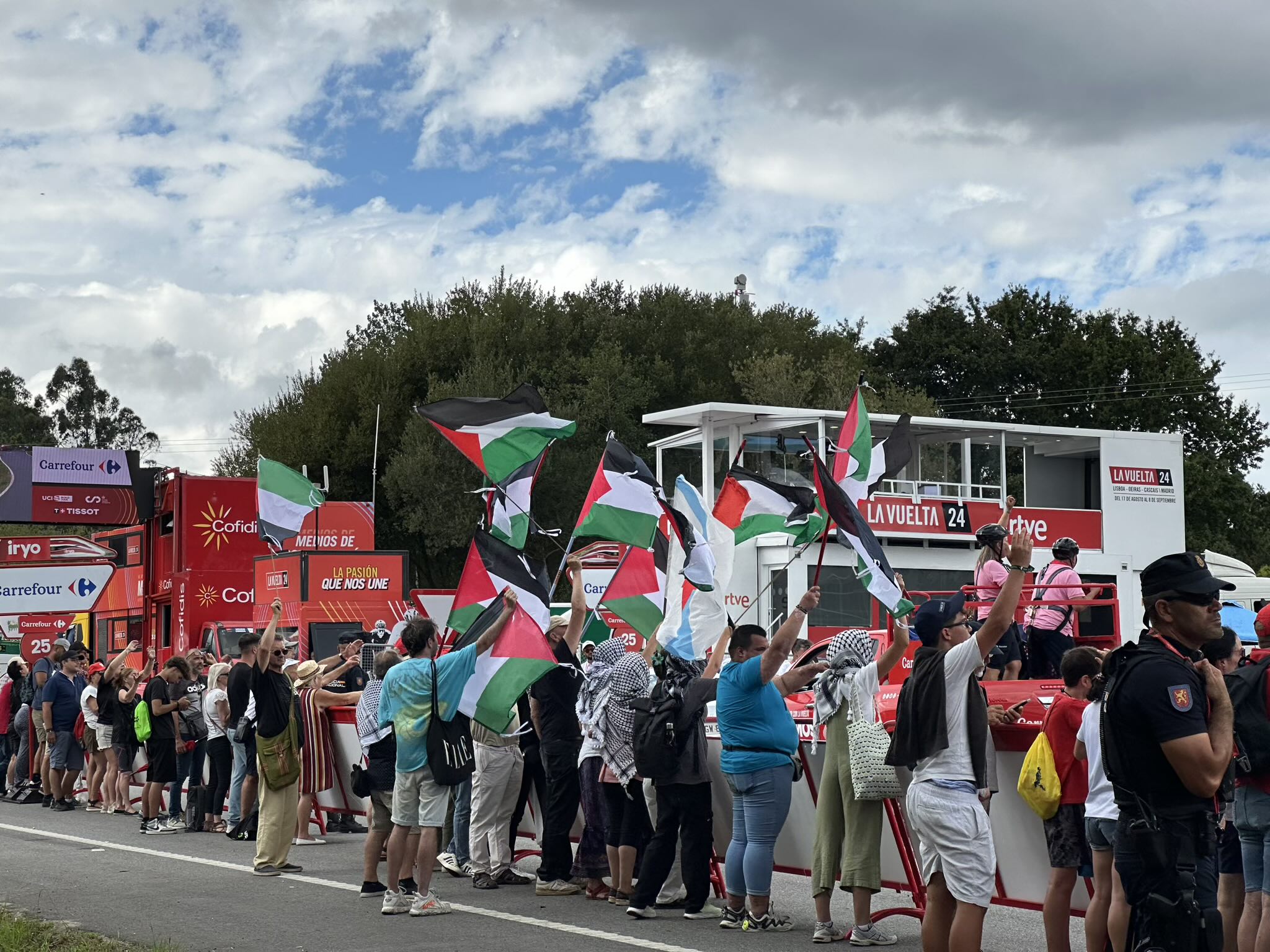Pro-Palestinian protestors bring abrupt end to Vuelta a España
The final stage of the cycling race Vuelta a España (Tour of Spain) was brought to an abrupt end, after pro-Palestinian protestors successfully entered and overran the track.
The Vuelta, just as other ‘Grand Tours’ such as the Tour de France and the Giro d’ Italia, consists of around three weeks of day-long cycling stages. An overall winner is declared at the end based on the cyclists’ cumulative time. Throughout the duration of the race, protesters espousing the Palestinian cause succeeded in entering the race course on multiple occasions, forcing the annulment of various stages and stoppages throughout.
Protesters celebrated what they saw as a victory for their cause
The primary reason for the protests that marred this event was the participation of team Israel-Premier Tech in the race, sponsored by billionaire entrepreneur Sylvan Adams. Israel-Premier Tech is far from the only team in sport to be accused of sportswashing (UAE Team Emirates and Astana Qazaqstan come to mind). However, the present situation in Gaza has attracted far more public anger. The UN commission of inquiry recently concluded that Israel has committed genocide against Palestinians in Gaza.
In forcing the cancellation of the final stage in Madrid, protesters celebrated what they saw as a victory for their cause by chanting ‘Palestine won this Vuelta’. Overall, they succeeded in garnering publicity and applying heavy pressure on the Israel team, but their approach was condemned by figures within the sport and others. The final stage in particular saw violence against police and the destruction of various barricades.
Rather than spectating from the bylines, Spanish Prime Minister Pedro Sánchez maintained an active role during the turbulence surrounding the Vuelta. Sánchez is known as one of the firmest supporters within Europe of the Palestinian cause. He vehemently defended the right to protest, stating his admiration ‘for the Spanish people who are mobilising for just causes like Palestine.’
Riders have offered varied opinions on the protests
On the other hand, cyclists participating in the race were unilateral in condemning what they saw as risks to their safety. During cycling races, participants often move at speeds exceeding 50km/h, making any disturbances dangerous.
Riders have offered varied opinions on the protests with some (including eventual winner Vingegaard) voicing support for the issue, but the overall consensus amongst cyclists remains that they want to be able to race safely and unaffected by protests. Race organiser Javier Guillen criticised the protest, calling the final-day disruption ‘absolutely unacceptable’. He also added, ‘it’s fine for people to take advantage of the Vuelta to make their statement, but we also demand respect for the race’.
Given that many stages in a Grand Tour such as a Vuelta involve over 200km of cycling, policing the entirety of the course is a virtual impossibility. Additionally, cyclists travel over publicly accessible roads and through built-up cities, making disruption by protesters far easier than other sports taking place in enclosed venues.
In the aftermath of the race, further questions have been asked about the viability of continuing under the Israel-Premier Tech name. The scrutiny and pressure placed upon the team has been uncomfortable for many of its sponsors, the majority of whom do not have direct ties to Israel beyond the team. In light of seeing their brands tarnished, they have begun to call for a change in the title sponsor. Jean Bélanger, CEO of Premier Tech, released a statement this week calling for a new name ‘which excludes the word Israel’ as well as demanding a new brand image for the team.

Comments